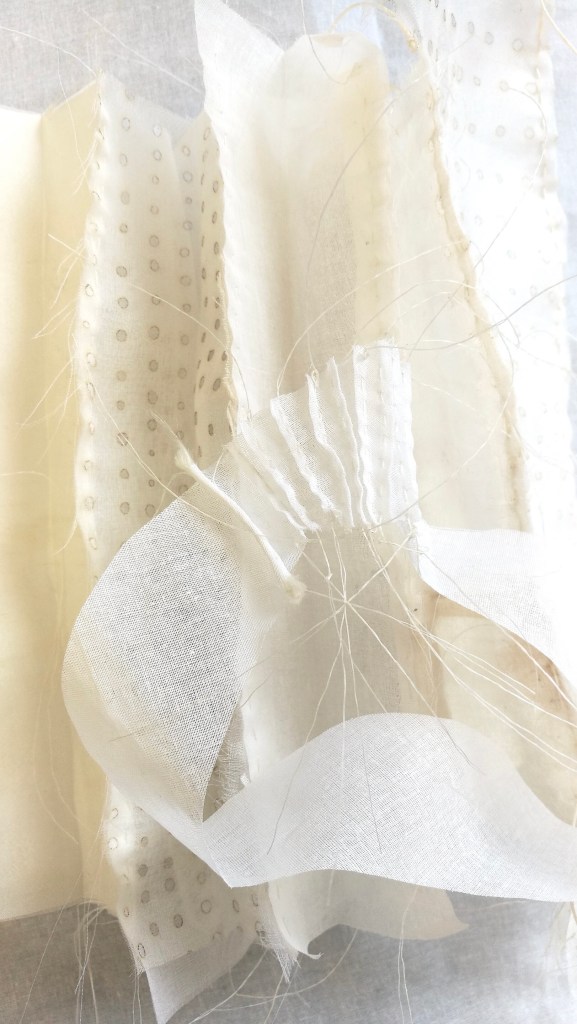
2.10.25 – 1.11.25
Thur – Sun 11am -4pm, Birley Studios, Preston
Part of the British Textiles Biennial 2025
An exhibition of mixed media and textile works by 16 members of the Textile Study Group, responding to the biennial themes and using polyester fabric offcuts from Blackburn based Edward Taylor Textiles, who specialise in the production of sportswear.
The British Textiles Biennial is focusing this year on invention and innovation, past present and future. Artists are looking back at the textile pioneers of the 20th century; the Lancashire textile industries being inspired by a bold vision of the future that revolutionised our lives. It asks us to look at how our own material future can learn from that past which is almost lost to us.
Clothing the people that conquered the sky, the mountains and the oceans with manmade fabrics and chemical concoctions, innovators did not realise the toll they would take on the planet.
Now we must reach back to the past to rediscover nature’s own innovation and how we might harness it to begin to repair and regenerate, exploring indigenous practices that still carry that knowledge and point to new solutions to heal what we once sought to dominate.
Edward Taylor Textiles has donated off-cuts of Polyester for the group to respond to and use for this exhibition. The part of the company this comes from is their high-performance sportswear department, mostly football shirts. Most of the cloth is white and stretchy, with some colour blocks and there are different grades and weights. The sports shirts are cut economically, using a cutting machine, before they are printed using sublimation printing on heat presses. They are then sewn after printing. So, the remnants we have are often shaped as the negative of the shirt pieces. The title of the exhibition refers to the bags of offcuts being delivered to us.
The Birley is located round the corner from the newly opened Harris Museum, and it will be possible to include a visit to our exhibition in a tour of other venues.












